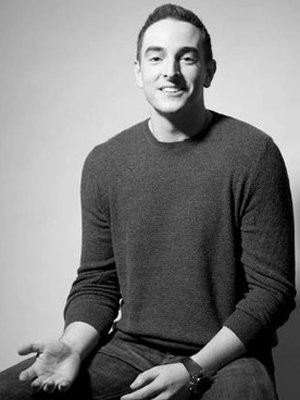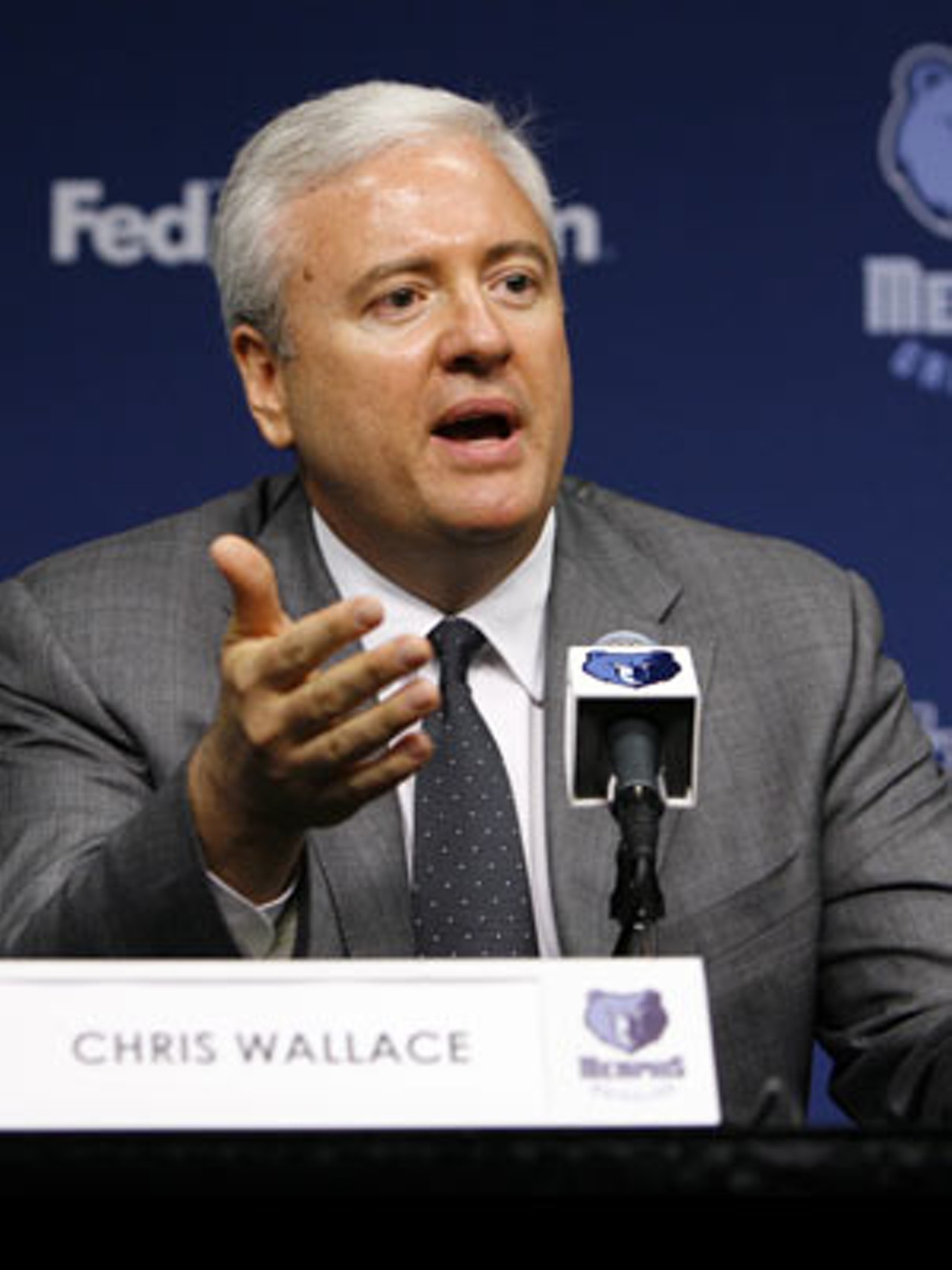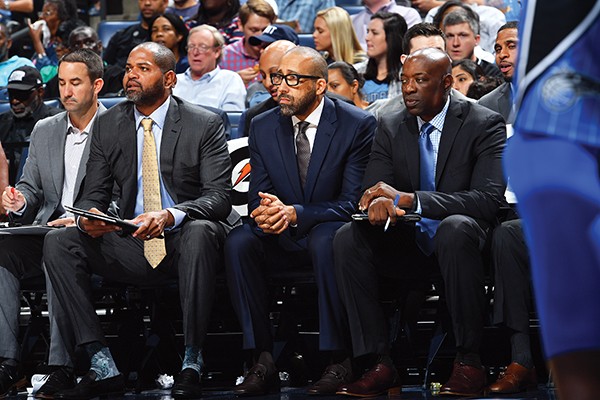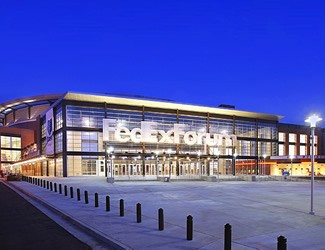
Grizzlies controlling owner Robert Pera
The days of worrying about the Grizzlies’ buy/sell clause are apparently behind us, as last night Robert Pera announced his intention to retain controlling interest in the franchise via an email to Grizzlies MVP season ticket holders. ESPN’s Zach Lowe reports this morning that the highest bid came from Daniel Straus, though Straus and Steve Kaplan both triggered the clause, and that the valuation from the Straus group was between $1.3 and $1.4 billion.
Regardless of the valuation—which, if that number is correct, is much higher than what I expected, and higher than the $1 billion valuation reported previously by the Sports Business Journal—Pera’s announcement settles months of speculation in Memphis and parts elsewhere about who would own the team heading into its most important NBA Draft in a decade.
Now. The question of “who will own the team?” appears to be settled. The questions that have been left hanging over the last 12 months now need to be addressed, some more urgently than others. What are they? What should Robert Pera do now that he’s signaled that he’ll be the owner going forward?
Set a Vision.
Michael Heisley had his Three Year Plan (which, somehow, actually worked). From there, the Grizzlies had years of “Grit and Grind” where they had an identity, a culture, a common set of goals, and success on the court and off. (Seems worth pointing out here that much of this culture was established under Lionel Hollins, who hasn’t coached the team since they left the floor at the end of the 2013 Western Conference Finals.) Much of that identity came from the players on the team, rather than from the front office, from Chris Wallace to his exile under Jason Levien and back. No matter what created that culture, it all cohered… until it didn’t.
[pullquote-2] 
Grizzlies GM Chris Wallace
The Grizzlies haven’t drafted well in the first round since they picked Mike Conley. Coming into this summer, they’re now guaranteed a pick no worse than 5th (though if it’s outside the top 3, this year’s combination of “tanking” and “terrible” will no doubt feel like a bit of a failure). Is Chris Wallace, who has been here forever, who has never once articulated that kind of a vision, that kind of “this is what we’re trying to do” philosophy that can guide a front office through what promises to be an arduous rebuilding process, really the guy to do that?
[content-3]
Even if the Grizzlies bounce back next year—which, as always, is possible “if healthy”—will Pera put in place basketball leadership who see that as immaterial to the process that needs to be built, or will they continue with the Wallace-era reliance on bringing in just enough talent to keep things going? That pretty clearly failed this season.
There are also things for which Wallace, if he’s really the sole decision maker like the Grizzlies will swear up and down he is, needs to be held accountable:
 Joe Murphy (NBAE/Getty Images)
Joe Murphy (NBAE/Getty Images)
(left to right) J.B. Bickerstaff, Dave Fizdale, Keith Smart
- The Chandler Parsons signing is still (somewhat) defensible, but there’s no possible way to argue that it’s been a success, or that his contract isn’t one of the worst in the league for what he can actually produce on the court.
- The lauded hiring of David Fizdale and then the decision to fire him less than 18 months after said hire, when he couldn’t get along with the franchise’s best player (or second best, if we’re taking Conley’s 2016-17 as an indicator of his level and not as his peak). If he’s the one who made the hire, he’s the one who needs to say “it wasn’t working,” and do it in a way that doesn’t make Marc Gasol have to spend months explaining why the coach got fired.
- The decision to throw a 2-year, $10M deal at Ben McLemore on the second day of 2017’s free agency period, as though he were a hot commodity ready to be snapped up, rather than a long-term project at best. He fits Wallace’s well known “great high school player who went to Kansas” profile, but so did Josh Selby. McLemore was clearly the worst player on a team that will be lucky if it wins 22 games, and the Grizzlies are paying him $5 million next year.
These are only the biggest decisions Wallace has been responsible for in the last two seasons. Despite the Grizzlies’ long run of consecutive postseason appearances, one could argue that they peaked in the 2013 Western Conference Finals and have been steadily declining ever since, and that Wallace has been the one at the helm for a large portion of that gradual coast into the ravine that is this season.
[pullquote-1]
The Grizzlies need someone running the basketball side of things with a clearly articulated vision for what kind of basketball the team will play, what kind of players they like and what kind of players they don’t, what kinds of gambles they’re willing to take, and what kind of coach they want on the sidelines. They need someone with whom the buck stops, and I remain unconvinced that it should be Chris Wallace. Pera’s the owner of the team; he’s the only one who can address this issue. Whether he maintains the jumbled status quo of the current front office, or moves to build a more coherent and considered management culture, will say a lot about what he thinks of the last three seasons of Grizzlies basketball.
Double Down on Memphis.

It’s hard to argue that Memphis makes sense long-term as an NBA market when Seattle sits out there ready to snatch up someone else’s small market team and immediately turn a team that takes a cut of revenue sharing into a team that pays into revenue sharing. When a franchise costs more than a billion dollars, even if they’re just mostly toys for rich people, it doesn’t make a whole lot of sense to lose millions of dollars on one.
So.
Seattle will always be out there until the owner of the Grizzlies takes them off the table for relocation. Pera’s email to season ticket holders said that
It is with intent that I referred to the “Memphis Grizzlies” … because I am committed to Memphis as an NBA market and as the home of the Grizziles.
Which is great to hear. The biggest fear rippling through the Grizzlies’ fanbase about the buy/sell agreement in general was that Kaplan (who was always on the radar as the bigger threat for some reason, despite the fact that Straus apparently made the larger bid) would be eager to move the team to Seattle where it could make money immediately playing in their new $600 million facility. But Pera saying he’s committed isn’t the same thing as Pera showing he’s committed.
Making an appearance in town every now and then would probably go a long way, but as Peter Edmiston pointed out this morning when I spoke to him on the radio, there’s a lease out there that ends in 2027, now less than ten years out, and the provisions that allow the lease to be broken start sooner than that.
I’m not quite sure what I’m asking Pera to do here. Extending the lease is the most obvious thing, but probably doesn’t make business sense at this time. At the same time, the Grizzlies have been rolling with the same look and feel, and essentially the same jerseys, since 2005. I think they’re overdue for a bit of modernization, for a new color scheme (the black and gold thing, whether it was real or not way back when the internet went crazy over it, seems to be coming back in subtle ways, and I’ve always thought the white/black/teal color combo was more distinctive). A new court. Things that say “we are investing in this thing” but aren’t really related to on-court product.
Pera’s spent money on the basketball facilities and the staff, but who knows whether that’s been out-of-pocket or through additional debt. Maybe, if he’s not going to flat-out extend the lease keeping the team here, sprucing things up a bit would be a good start? The bottom line, though, is that if he means it, he’ll extend the lease at some point (or negotiate a new one that still keeps the team here).
Communicate.
It’s not so much that Pera doesn’t speak to the press or the public. Lots of owners of pro teams don’t really do that. But the ones who aren’t immediately approachable in that way usually have figureheads. Who is Pera’s figurehead? Who explains decisions to the public?
This year, too often, it was Chris Wallace, JB Bickerstaff, and Marc Gasol. Emails to season ticket holders are fine, but ultimately, as Chris Herrington said excellently this morning, a sports franchise—especially the only pro team in a small market like Memphis—is something more like a public trust than a private corporation, especially when that sports franchise plays in a building built and owned by the City of Memphis itself.
Between starting their own media company in Grind City Media and breaking news in emails to season ticket holders, the Grizzlies try to manage their PR by going direct, and while they seem to be building audiences for some of the Grind City stuff, it’s hard to argue that sending emails to season ticket holders helps them disseminate their messaging more broadly. It makes them look cloistered, like they’re hiding something.
I guess it’s easy for someone who has to go to press conferences to say the answer is “hold press conferences,” but I don’t think it’s that simple. In creating their own avenues to share their messaging, the Grizzlies are creating an atmosphere of secrecy and an information vacuum, inadvertently or not. Having someone who can face the public—and, again, by no means does it have to be Pera himself—would go a long way towards helping the Grizzlies seem more open, more transparent, like less of a black box out of which come little morsels of information about decisions that seem to have been pulled from thin air. The channels they’ve created for themselves—no matter how hard they fight this assertion and try to set them up so that this isn’t the case—will always feel a little bit like state media.
Conclusions
I think it’s hard to argue that this isn’t a win for Memphis compared to the alternatives. Admittedly, the Straus group is a bit of an unknown, but it’s clear that the Kaplan group, no matter what their intentions about keeping the team or moving it or anything else, would have implemented some pretty sweeping changes on the basketball and business sides of the organization, and that those changes would have been happening during a time in the history of the team when the leadership needs to be “on one accord” to use a phrase Mario Chalmers says all the time.
Pera says he’s committed to Memphis as an NBA market and as the home of the Grizzlies. I hope that’s true, and I have no real reason to doubt it. But, now that he knows he’s going to own the team, it’s time for him to set a course for the organization. It’s something that only a controlling owner can do, whether he wants to be seen doing it or not.